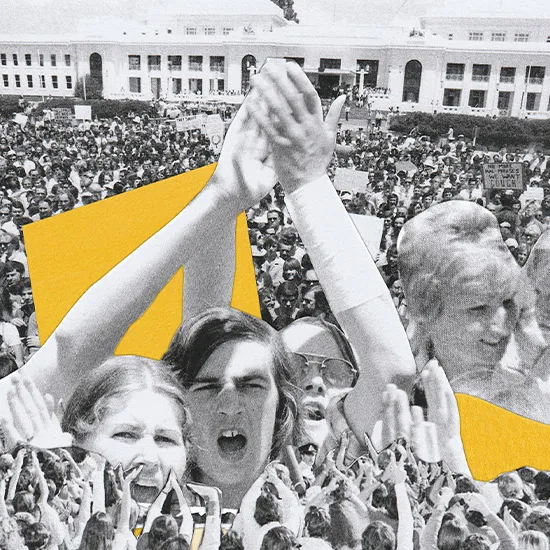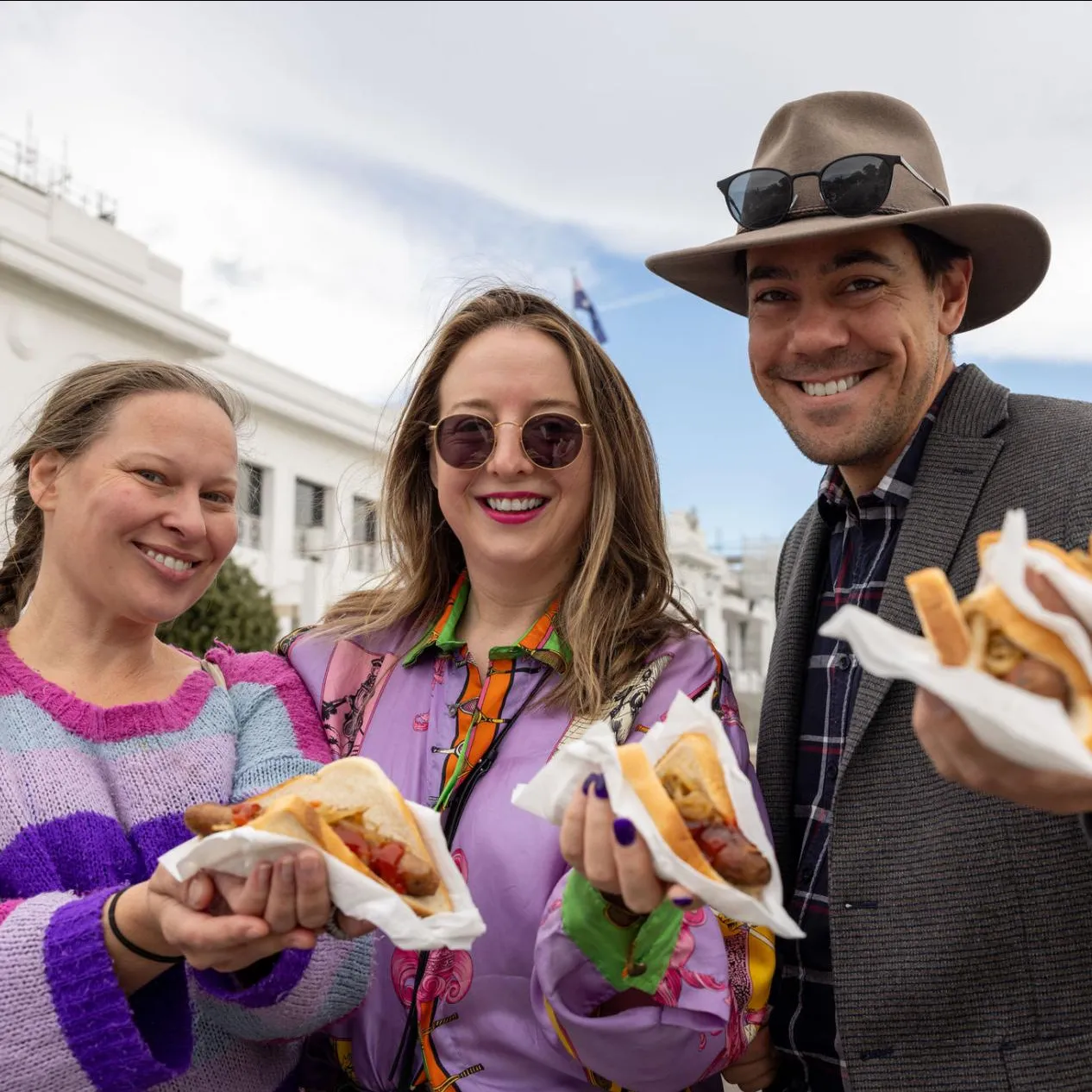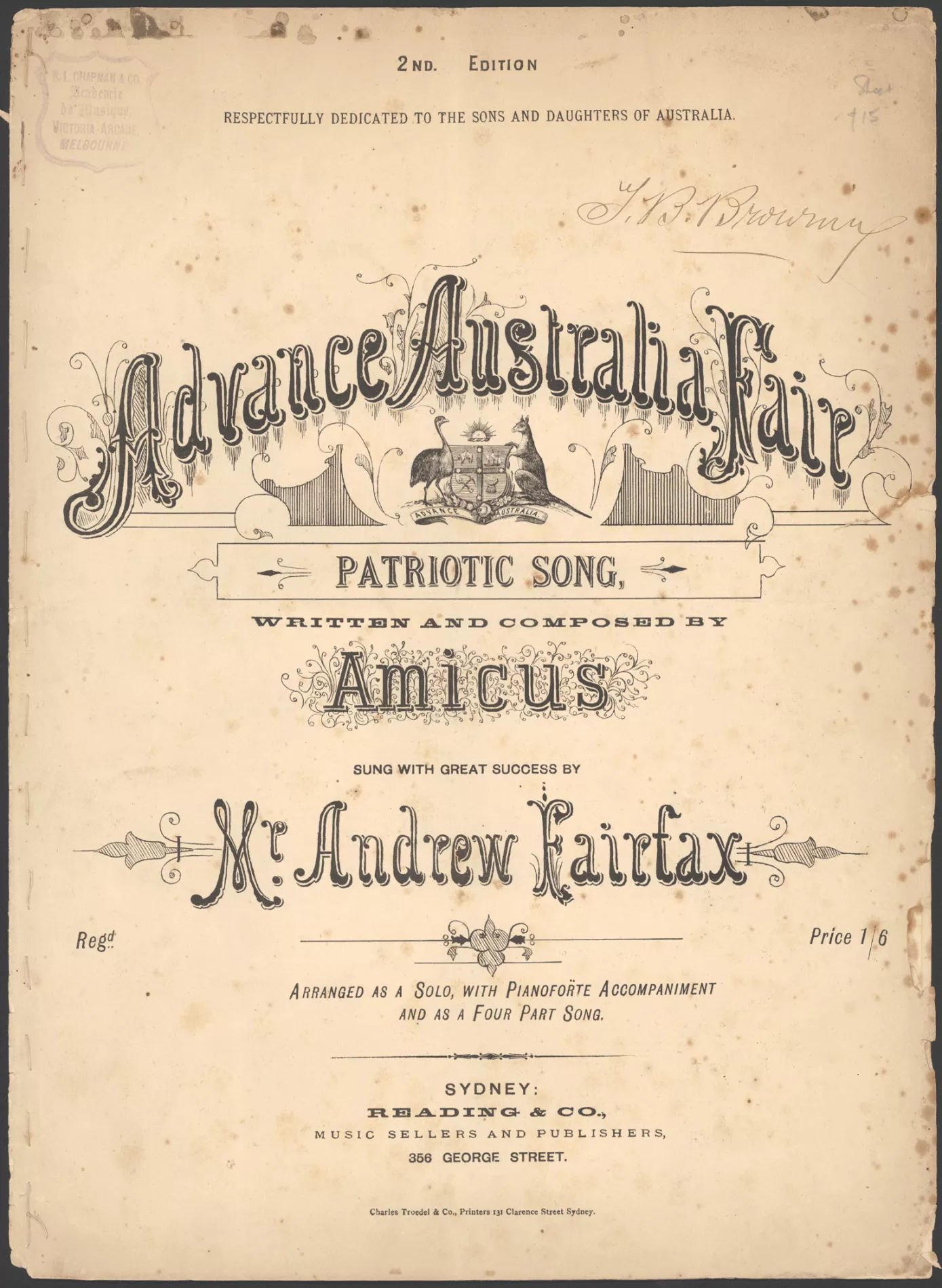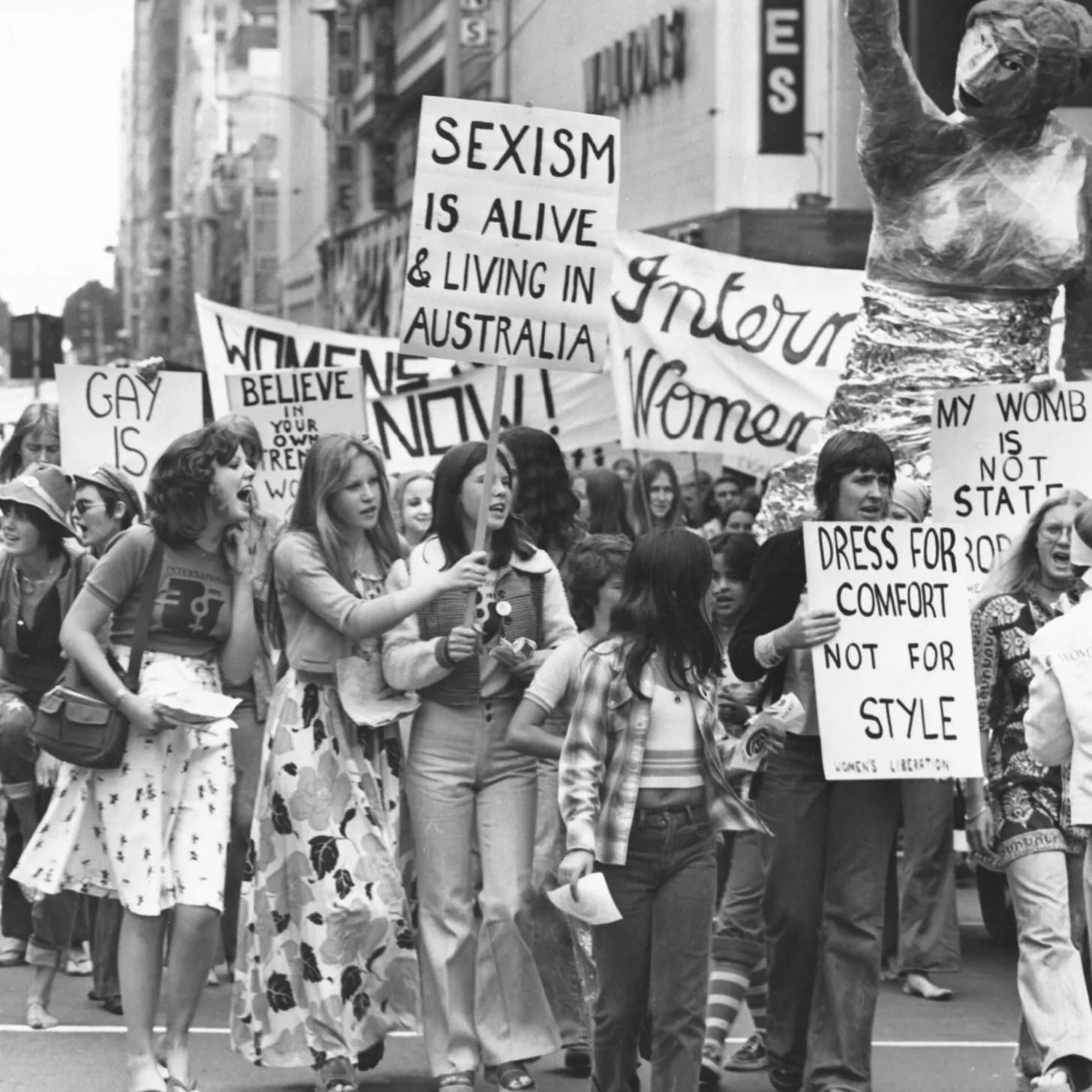The dismissal: where were you?
Stories and reflections from the day of the 1975 dismissal.
'It started out as another "not much happens here" Canberra Tuesday. I was 18 and in my first year at the then-Canberra College of Advanced Education. The morning radio news mentioned that there "might" be a major event on the steps of Parliament House with serious implications for the Whitlam government.
My 70-something Grandma was staying with our family. She lived in Edithburgh, South Australia, another place where not much happens. "Grandma, there might be something happening at Parliament House today. Let's go?" Surprisingly, she flung down her crotchet needles and in minutes we were heading over Kings Avenue Bridge in my not-so-trusty $300 Holden.
And while Gough Whitlam's "Well may we say, God save the Queen etc." will be the more remembered line of the day, my favourite was Bob Hawke cutting our beloved Norman Gunston off at the interview pass with, "It's a bit too serious for that." To which Norman replied absolutely deadpan: "Yes it is. I quite agree."' – Bruce W Stephens, Sydney
'The opening phrase was "proclamation by His Excellency the Governor-General" and that sort of produced a crescendo of the noise from the assembled multitude. And I thought, "Well I'll just wait then, they must stop in a moment, I'll just pause and then I'll go on when they get quiet." And they didn't, they kept going.
The footage shows a smile coming onto my face for a moment and that was because I was hearing offside as it were, various comments that were being hurled at me, including some advice about what the Governor-General could do and what I could do and what I could tell him to do... And I just caught the odd humorous one that caused me to smile for a moment and I suddenly realised, "I can't stand here all day, I've got to get going", so I just bored into it and went on with it.' – David Smith, the governor-general's official secretary
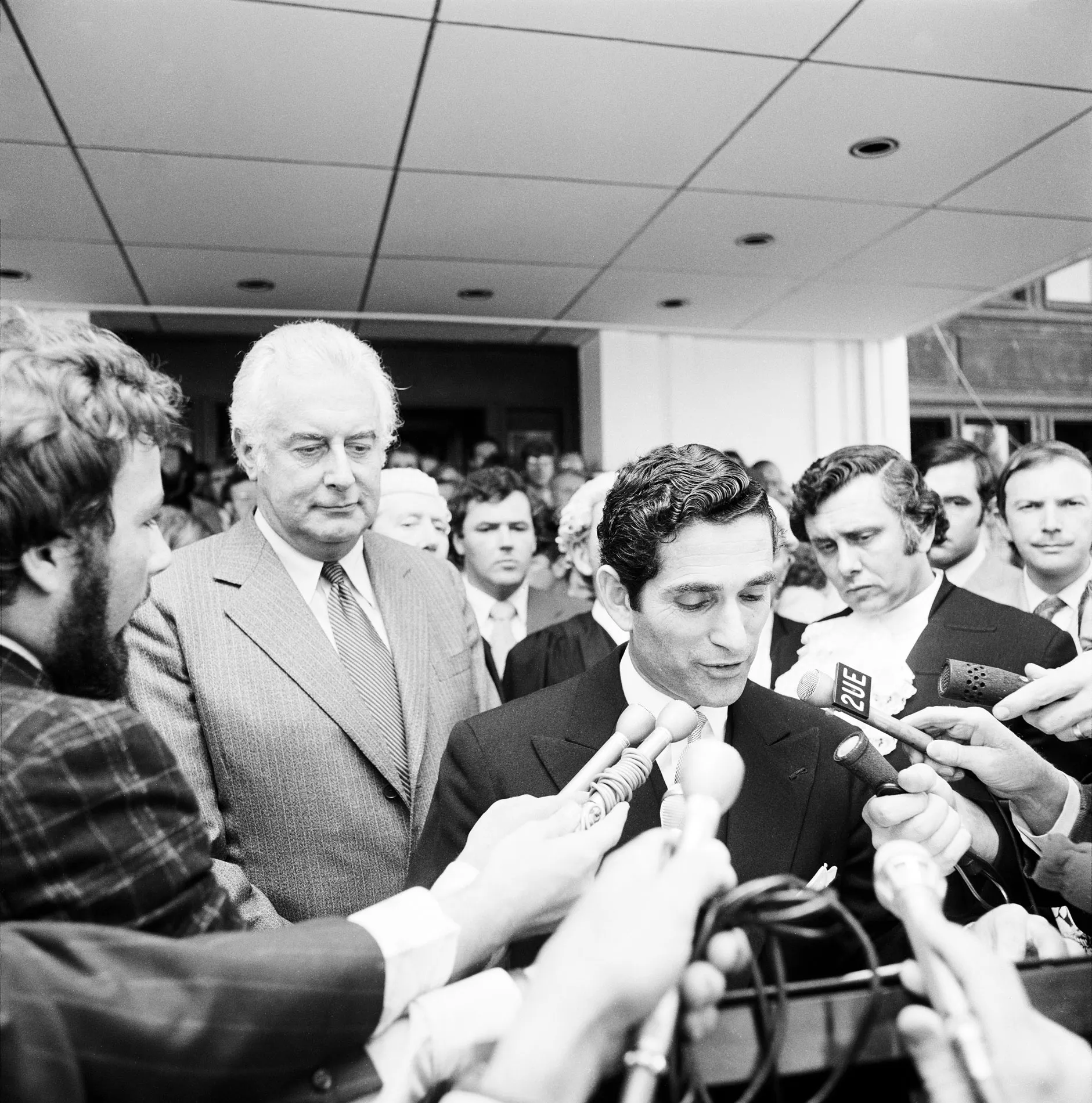
- Jessica Coates
'I was working for the Australian Bureau of Statistics in Canberra. The political climate in Canberra was very volatile, and federal public servants were facing the possibility of not being paid due to a failure of the Labor government of Gough Whitlam not having passed the necessary government supply bills. The thought of not getting paid for a few months was a real worry.
On hearing on the local Canberra radio that a major announcement regarding the government was about to be made at Parliament House, I decided to swing by. I parked my car and made my way to the front steps. A large crowd had gathered on the steps consisting of locals, journalists and TV reporters – it was a frenzy of excitement. Five minutes after I had arrived on the steps, the Governor-General's secretary, David Smith, then appeared immediately adjacent to where I was standing at the front of the throng. He then announced that the Governor-General had sacked Prime Minister Whitlam and asked Malcolm Fraser to form a caretaker government.
We got paid the next week.' – Michael Lewis
'I wasn't at Parliament House on the day of Whitlam's dismissal, however I was at school sitting in my year 11 politics exam and writing an essay. The topic was: How is the constitutional crisis going to be resolved?
When we all walked out of the exam room, we discovered the answer on the front page of the afternoon newspapers! It was quite a memorable day. We wondered how our essays would now be assessed.' – Catherine Padey
- Marilyn Harrington (Mednick)

'I worked for the Melbourne Herald as a newspaper delivery truck driver. On the day Gough Whitlam was dismissed, I had finished the last delivery of newspapers and returned to the Herald-Sun building in Flinders Street Melbourne, ready to knock off for the day. The place was in absolute chaos; bosses and journos running around not fully understanding what had just happened in Canberra.
A decision was made to print a special late edition Herald and get it out to the Melbourne CBD and nearby suburban areas. I finished up taking a load of newspapers out through East Melbourne, Hawthorn, South Yarra. Traffic was a nightmare at the time, but I got paid overtime for the extra hours, so that was a bonus for me. Nobody really knew what was going to happen as a result of Kerr's decision.' – Robin Date
- Roderick Allan
'In 1975, I was a serving officer in the Australian Army and was one of three junior officers on a panel for the position of the governor-general's next military aide-de-camp. I, along with my two colleagues, Bill Denny and Bob Aley, were told to report to Canberra on 11 November for a full day's assessment.
We reported to Government House at midday on the 11th and were shown to our accommodation. Soon after, we met the current aides, one of whom had just returned from the War Memorial, where he and the Governor-General had attended the morning's Remembrance Day commemorations. We were told that the Governor-General would meet us just before lunch.
At around 12.30 we were shown into an anteroom, where the Governor-General, his wife and some other members of the household staff were having drinks before lunch. After a brief conversation with us, he excused himself, saying "I must compose myself before my meeting with the prime minister." About 20 minutes later he reappeared and addressed the group, saying "I have just dismissed the prime minister and appointed a new one."
Needless to say, we were stunned. The constitutional crisis had been going on for weeks, but this turn of events was a huge surprise, and other than Gough Whitlam and Malcolm Fraser, we were the first to hear about it.
We adjourned with the Governor-General, his wife and some staff to the dining room and over lunch there was some conversation about a suitable time to "notify the palace". Later, the Governor-General's principal private secretary, David Smith, left the table to call London. We three were sitting together, and the Governor-General spoke to us a few times, but inevitably, the conversation returned to the events of the morning. He was convinced that his actions would break the parliamentary deadlock, and that the crisis would be resolved by holding an immediate general election. His reasons have been covered extensively since, and from my recollection, there was nothing said at the table that differed from what he said publicly afterwards. However, at one point he looked to our end of the table and asked, "What do you three young captains think of this morning's events?" Without pausing, Bill Denny replied with words to the effect of, "It's been very entertaining so far Your Excellency; what do you have planned for us this afternoon?" Much laughter ensued.
The three of us stayed for the rest of the day and overnight, the intention being to acquaint us with the aide's job and the workings of Government House. I'm not sure whether I had my interview with the Governor-General that afternoon, or the following morning. However, I was unsuccessful, and Bob Aley was appointed.' – Roderick Allan
Dismissal 1975: Roderick Allan's story
0:00

Government House, Yarralumla 1970.
'I was in year 12 at Narrabundah High at home studying for my HSC, when the news came across the radio that the Governor-General had sacked Gough Whitlam. I downed my pen and jumped on my little step-through motorbike and raced to Parliament House to see a crowd of people gathering, who like me, couldn't believe what they had heard and wanted to find out what was happening for themselves. The atmosphere was highly charged and as I arrived there were cameras filming us and of course, Gough, the Governor-General's secretary, the journos and other Labor pollies up on the steps under the portico.
I couldn't really hear much but recognised when I needed to cheer or boo by the way the people in front of me were acting.' – Ms Amanda Evans
Dismissal 1975: Amanda Evans's story
0:00
- John Edquist
'Soon after lunch on Tuesday 11 November I was at work in the Department of Trade, but not doing anything very urgent or very interesting. The Assistant Secretary came out of his office and asked those of us on the floor "Who wants to run over to Parliament House with this minute?" Feeling that a walk in the sun would be a pleasant break, I volunteered and soon set off.
I arrived at Parliament House, walked up the steps and into King's Hall, and turned right to go to where the Minister for Trade's offices were. Access was somewhat easier than it is today, with no security guards and restricted access. I soon arrived at the office to walk into a scene of chaos. All the minister's staff were grabbing files and throwing them into cardboard boxes. No one seemed interested in accepting a minute to the minister.
I asked an adviser what was going on. He said "Haven't you heard? The government's been dismissed" and turned back to frantically packing files. I left the minister's office to return to work, but realised that something important was happening.
People seemed to be gathering at the doors of Parliament, so I went there and hung around. The crowd thickened and I found myself being pushed further back. I climbed up on one of the balustrades, hanging on to one of the pillars, to get a better view. After a while a man with a rolled-up sheet of paper pushed his way through the crowd, announced he was the Governor-General's secretary, and began to read the sheet. It was soon apparent that this bit of theatre was the dismissal of the prime minister.' – John Edquist

Dismissal 1975: John Edquist's story
0:00
'On November 11, 1975, I was in Sydney intending to stay the night at Kirribilli House... I was interrupted before we went down to lunch by a strange call from Gough's driver who said, "They've sacked the boss." And I said, "What are you talking about?" He said, "He's going to ring you himself, he'll tell you."
The next thing ... he rang up and said, "He sacked me." I said, "Who sacked you?" ... When he said something about "he'd given him a note sacking him", I said, "Why didn't you tear it up?" He said, "I couldn't do that." Silly man, I'd have torn it up, who was to know he'd been given anything?' – Margaret Whitlam, Gough Whitlam's wife
- David Mitchell
'On the 11th November 1975 an end of school year excursion was to the Canberra Playhouse to view the rather risqué David Williamson film The Removalists. Halfway through the film, the teachers stopped the film, raised the house lights, grabbed the public address system and declared to all, "Gough's been sacked! We're off to Parliament House." A few of my other classmates followed to the steps of Parliament House and soon we were swamped by hundreds of protestors as public servants streamed out of the government buildings. Keen to get a better view I was able to scale a column to see Norman Gunston's arrival, deep concerned discussions with Labor luminaries such as Fred Daly, Kep Enderby, Bob Hawke et al. I do recall a bewildered-looking Doug Anthony wandering around aimlessly.
"We want Gough" and "Shame Fraser Shame" was a constant chorus as we waited for Gough to appear.
I was still on the column when first David Smith appeared, then Gough to deafening applause. I still get shivers when I hear and see replays of his speech especially the reference to "Kerr's cur" – I had to ask a more mature protestor what a "cur" was.' – David Mitchell
'I suppose he was very committed and clear in what he wanted to do and why he wanted to get rid of Whitlam. Even me, non-political me, had views on wanting to get rid of Whitlam... I thought it had to happen, and Malcolm could do it.
The last weekend before Kerr made his decision on the Monday, he was very wobbly. He just said, "Look, if Kerr doesn't make a decision on Monday, I've got nowhere else to go. The decision has to be made. The government has to be running by this week."
I really didn't realise that he'd become prime minister.' – Tamie Fraser, Malcolm Fraser's wife
- Christine Wawn

'How vividly I recall the afternoon of the 11th November, 1975! I was in Manuka, listening to the ABC news at 3pm on my way to collect my three primary school age children from a school nearby, I heard that it was "all happening" at Parliament House. So, on collecting my young passengers, we headed straight to Parliament House. We stood at the bottom left-hand side of the front steps, just out of range of the TV camera operators. As we watched the ABC 7pm news, I was disappointed we were not on TV, as I'd told the children we well might be. We were there in time to see Gough Whitlam and David Smith, later Sir David, we stayed on to witness Malcolm Fraser appear later. Never have I seen a person so ashen-faced, as our new prime minister that day! To the best of my recollection, my children were the youngest attendees that day. I felt it was important for them to be part of such an historic event.' – Christine Wawn
'This photo was on the front page of almost every paper in Australia the next morning of the moment Gough Whitlam stepped onto the top of the stairs of Parliament House, where John, my then-wife, Jennie Miller, and I were standing!
I had taken a sickie from my job at Foreign Affairs that day to play Diplomacy with John and a few other mates and we headed to Parliament House when we heard of the sacking. And got the front row seat! We stayed on at Parliament House well into the evening and, had it not been for Senator Willesee calming the crowd, we most certainly would have marched to Government House.
This photo was on the front page of The Canberra Times the following day and my then-boss, Assistant Secretary Ken Rogers, walked into my office after I had arrived, dropped the paper onto my desk and asked, "Feeling better are we Shann?"' – Ian Shann
Dismissal 1975: Ian Shann's story
0:00
Photography credits
Image 1: Crowds outside Parliament House after the dissolution of parliament, 1975. Photograph: NAA A6180, 13/11/75/35
Image 2: David Smith reading the proclamation dissolving parliament outside Parliament House with Gough Whitlam looking over his shoulder, 1975. Photograph NAA: A6180, 13/11/75/45
Image 3: Gough Whitlam on the steps of Parliament House after the dismissal speaking to the press and assembled crowds, 11 November 1975. Photograph National Library of Australia
Image 4: Parliamentary Library. Photograph Lori Anglin, Tanner and Associates
Image 5: Malcolm Fraser outside Parliament House after the dissolution of parliament, 1975. Photograph: NAA A6180, 13/11/75/31
Image 6: Government House, Yarralumla 1970
Image 7: Demonstrators gather in front of Parliament House supporting the Labor Party after the dismissal of Prime Minister Gough Whitlam, Canberra, 12 November 1975. Photograph by David Reid, National Library of Australia, nla.obj-151761263
Image 8: A crowd, including Gough Whitlam, on the steps of Parliament House, 11 November 1975. Photograph NAA: A6180, 13/11/75/36
Image 9: Gough Whitlam speaking outside Parliament House after the dismissal, 1975. Photograph: NAA, A6180, 13/11/75/34
Image 10: Malcolm Fraser leaving Parliament House after the dissolution of parliament, 1975. Photograph NAA: A6180, 13/11/75/41
Image 11: Malcolm Fraser on the steps of Parliament House after the dismissal surrounded by media, 11 November 1975. Photograph NAA: A6180, 13/11/75/47
Image 12: Gough Whitlam outside Parliament House, 11 November 1975. Photograph NAA: A6180, 13/11/75/40

